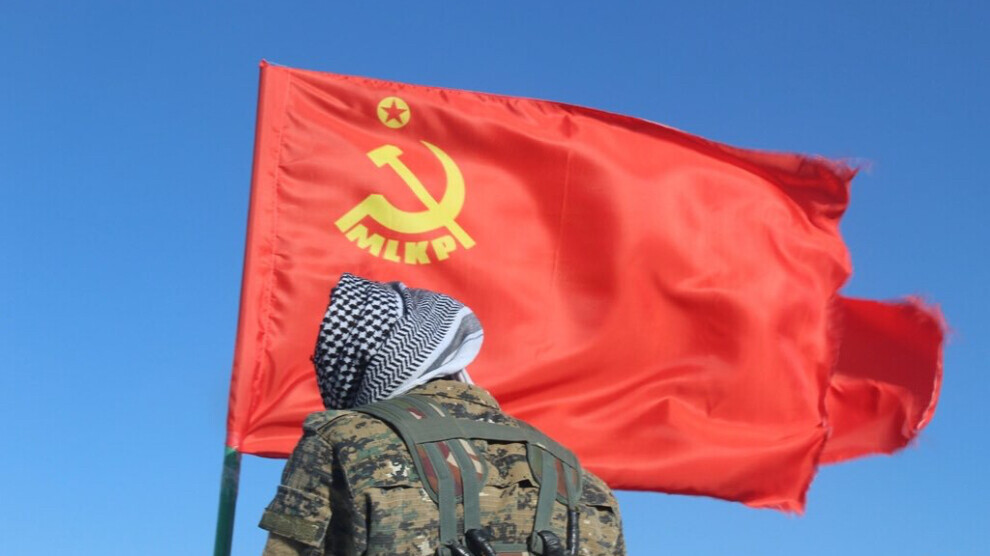MLKP fighter martyred in targeted Turkish attack in Rojava
MLKP Central Committee announced the martyrdom of a party member, Şervan Karadeniz (Osman Nuri Ocaklı), in Rojava.
MLKP Central Committee announced the martyrdom of a party member, Şervan Karadeniz (Osman Nuri Ocaklı), in Rojava.

In a statement on Wednesday, the Central Committee of the Marxist-Leninist Communist Party (MLKP) announced that one of their members, Osman Nuri Ocaklı (nom de guerre Şervan Karadeniz), was assassinated in a targeted aerial attack by the Turkish state in Rojava on 12 June 2023.
“Following the attack, fascist centres, through reports disseminated by the media of the Palace, cheered on the killing of the communist fighter who represented the honour of the laborers from Rize in Rojava, spitting their eternal animosity against the brave son of the Laz community. We tell them; no matter what you do, the Black Sea will continue to raise the likes of Osman Nuri who will overwhelm the fascist chief regime, and the MLKP’s organisation and fight for victory will never come to a stop for a single moment,” said the statement.
MLKP said that Şervan Karadeniz left the legacy of a 35-year-old revolutionary struggle for the people.
According to the statement, the MLKP fighter was born into a Laz family on 5 September 1966 in Fındıklı, in the Rize province in the northern Black Sea region of Turkey. He joined the revolutionary struggle in his high school years. In 1983, he went to Amed (tr: Diyarbakır) for university education and got to know the struggle of the Kurdish people closer there.
After almost ten years behind bars, he was finally released in 2013, when he went to Rojava and undertook the responsibility to defend the revolution there.
MLKP pointed out that: “It is our obligation to carry the sympathy, Marxist-Leninist internationalist consciousness, spirit and practice of Comrade Şervan Karadeniz with the Kurdish nation and oppressed nations to the workers and the oppressed from Turkish, Laz, Arab, Armenian, Circassian, Greek, Georgian, Bosnian, Roman and Pomak peoples.”